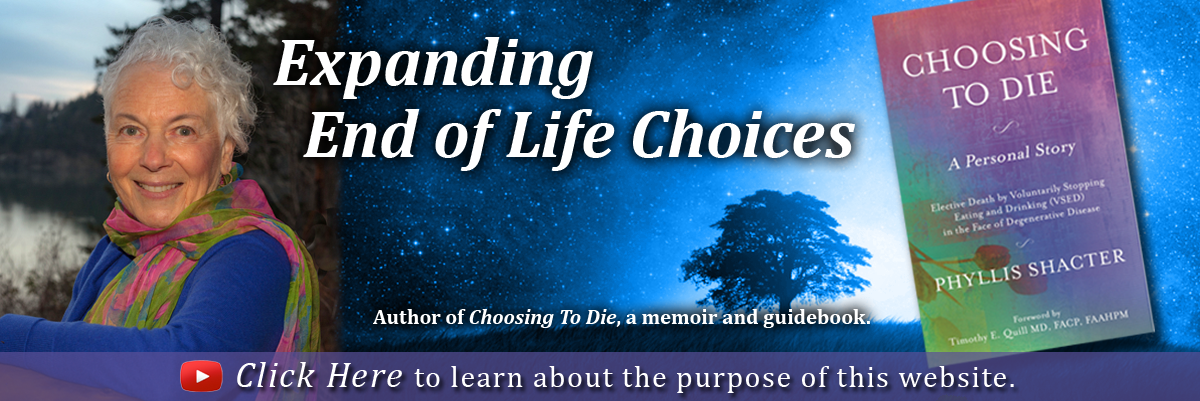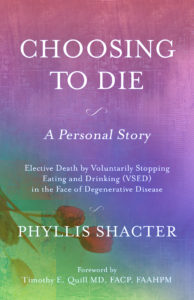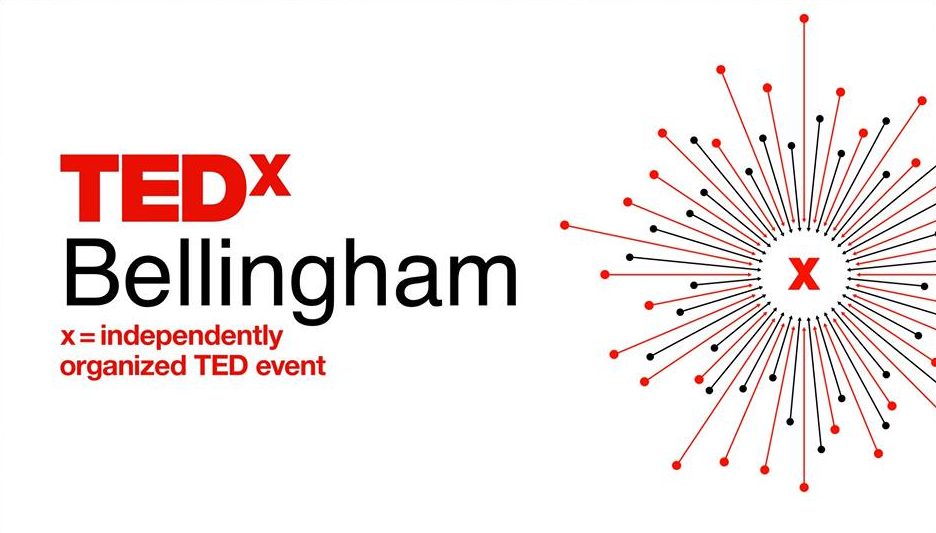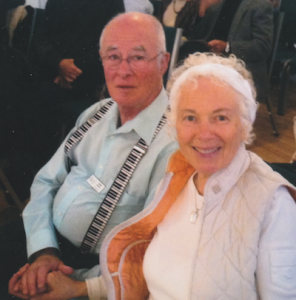This memoir and guidebook follows the journey Phyllis took with her husband, Alan, once he decided to VSED.
Read More …
On November 2013, only seven months after her husband died, Phyllis gives a TEDxBellingham talk. This poignant talk explains the five choices Phyllis’ husband Alan made leading up to his decision to voluntarily stop eating and drinking (VSED). Click here to access Phyllis’ TEDx Talk.
CLICK HERE
For an expanded and more informative, version of the TEDx talk.
Phyllis Shacter is interviewed by Jane Duncan Rogers, Founder and Chief Officer of Before I Go Solutions on a call with End of Life Planner Facilitator trainees.
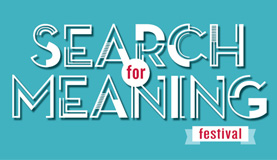 SEARCH FOR MEANING FESTIVAL: February 24, 2018 at Seattle University
SEARCH FOR MEANING FESTIVAL: February 24, 2018 at Seattle University
Click to watch this Phyllis’ inspiring presentation. Search for Meaning is Seattle University’s annual community festival dedicated to topics surrounding the human quest for meaning, and the characteristics of an ethical and well-lived life. Phyllis Shacter is one of 50 authors who has been chosen to speak at this event.
Go to 23:07 in the video to see and hear Phyllis’ rap song about her unique story!
 The First National Conference on VSED: October 14 – 15, 2016 at Seattle University.
The First National Conference on VSED: October 14 – 15, 2016 at Seattle University.
This was a large multi-disciplinary academic conference with an audience of mostly doctors, lawyers, hospice workers, nurses and social workers. This 23 minute video covers Phyllis’ presentation.
- Is VSED Suicide?
- VSED in 9 ½ Days
- Medical Preparations
- Care Giving Supplies
- Legal Preparations
- Being An Advocate
My husband, Alan Alberts, was diagnosed with Alzheimer’s disease and laryngeal cancer toward the end of 2011. He was able to heal the cancer, but the Alzheimer’s advanced. While he was still mentally competent, he decided to voluntarily stop eating and drinking (also called VSED) so he did not have to endure the indignities of living into the late stages of Alzheimer’s. Alan died consciously and peacefully on April 19, 2013.
Alan knew it was time to stop eating and drinking when he was too fatigued and no longer engaged in life in a way that was meaningful to him. His personal marker was when he could no longer attend our local Center for Spiritual Living (CSL). This Center represented love and community to Alan. This photo is from Alan’s last time at CSL.
My website includes the details that led up to his decision and the substance of what occurred during his decision making process. I’ve included details from the nine and a half days of his fast. I was his advocate. I share everything I did to support him through the process. There are online interviews, informative presentations, pertinent medical and legal guidelines, and more.
My husband’s choice may not be your choice or the choice of your loved one. But it is my hope that if we each participate in the planning of our own death, we may have the same kind of peace that my husband experienced.
Phyllis Shacter header image photo credit: Jeff Aspnes Photography

